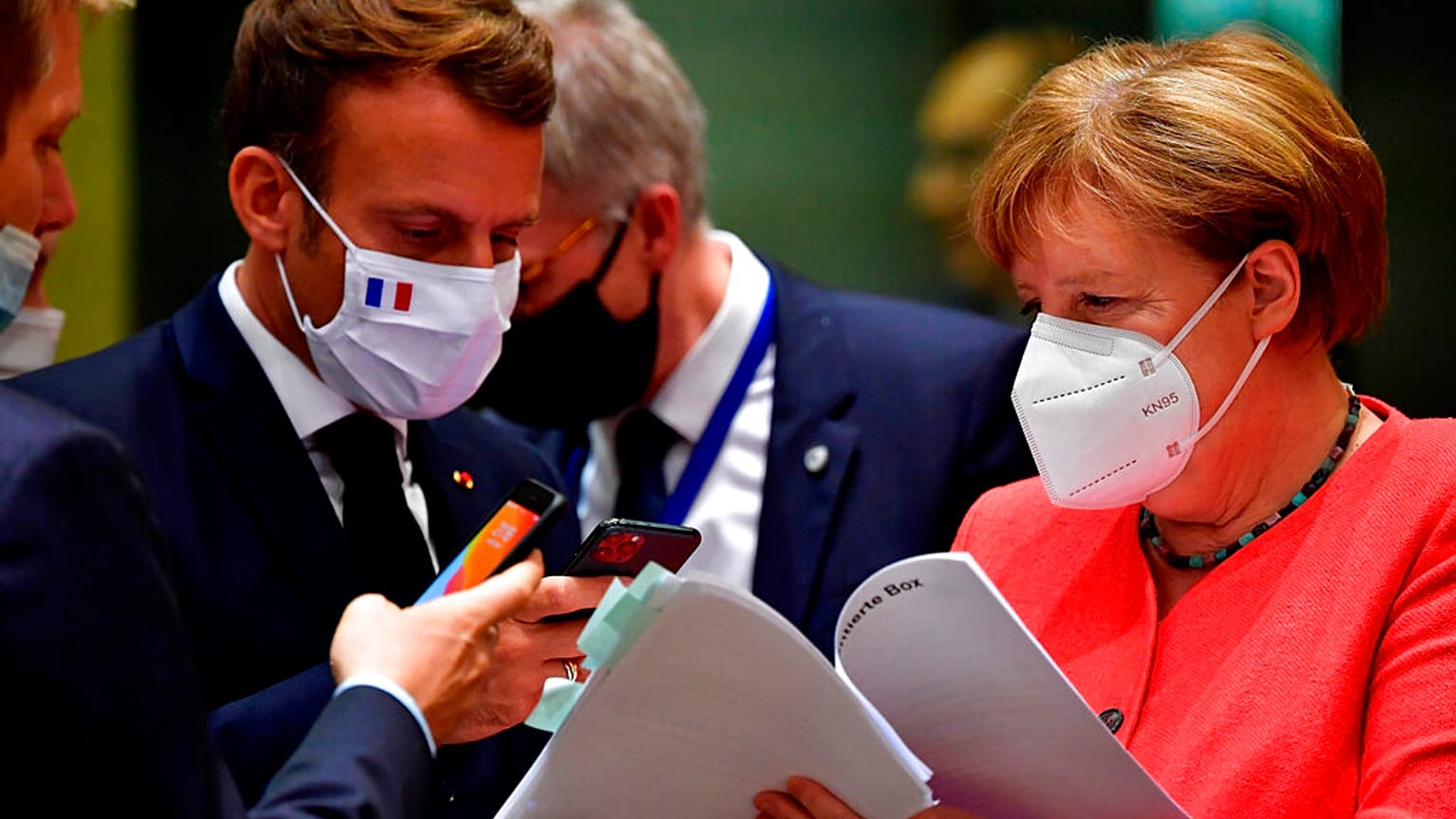Now is the time to consider how to roll back support when the opportunity presents itself, say Ivan Mikloš and Soňa Muzikárová.
As Europe’s largest economy, Germany, extends financial aid for pandemic-hit companies until the year-end, the debate on how long and to what extent pandemic support should continue moves into the spotlight.
Financial support and job retention schemes have been the backbone of Europe’s response to the coronavirus crisis. Direct wage subsidies for firms have helped keep them alive, as they faced a sudden contraction in sales due to the lockdowns. They have also been effective in preventing job losses and retaining talent in firms.
Together with other fiscal measures to improve firms’ cash flow -- including tax and loan payment deferrals, moratoria and loan guarantees -- the reaction has been effective at deterring bankruptcies. The number of businesses gone bust has declined on quarter for the euro area in the first six months after the pandemic’s onset last year.
The European stimulus differs from that provided on the other side of the Atlantic.
In the US, financial aid was issued to the unemployed rather than focused on retaining employment, allowing for the quicker reshuffling of workers between firms and sectors as the crisis unfolded.
With vaccinations underway, Europe is approaching a new breaking point in the pandemic, where infections are set to gradually decline and sanitary restrictions will be lifted. Such a point may pose an opportunity to revisit the current large-scale economic stimulus underpinning the European economy.
European governments should start thinking today about how to gently roll back support when such an opportunity presents itself.
There are three main points to keep in mind to that end.
One, governments should move from large-scale, economy-wide programmes to selective support with better targeting. The early emergency response to the COVID-19 pandemic has been effective in putting a floor beneath the crisis. The current situation, with imminent emergency behind us and GDP forecasts even revised upwards to reflect the better-than-expected ability of firms and people to cope, warrants changes to the existing approach as vaccine rollout gains momentum.
Two, governments should look for lessons in past crises in adjusting the aid package for the upcoming recovery phase. The 2010 eurozone crisis, for example, has taught us that there comes a point when indebted firms under pressure do not take on more debt – a trend we have also seen in this crisis – hence programmes focused on balancing debt with more equity may be more successful in nursing firms back to health. The global financial crisis of 2008-2009, furthermore, taught us that sustained support to workers is actually worth it and incurs minimal efficiency losses.
Three, maintaining the economy-wide support for too long may be a missed opportunity for Europe. The relocating of workers and capital to better business models, jobs and sectors that will start once governments withdraw the economy-wide package, may support entrepreneurship and unleash new value creation and is beneficial for the productivity of the European economy at a fundamental level.
Avoiding such organic economic restructuring altogether by a continuation of unselective support would be a mistake.
The usual cost and benefit considerations, of course, apply. On the one hand, pulling back support suddenly may kill too many otherwise healthy, well-performing firms that are not yet out of the woods.
On the other, holding on to unviable jobs and keeping unproductive firms on life support may be detrimental to the recovery, hurting the productivity of the European enterprise, and the underlying public spending morale.
Thus, the phasing out should thus take place alongside sustained and targeted support programmes that continue assisting the families, individuals, and companies suffering the gravest effects of COVID-19.
Just as selective support may be less costly for the economy, more competitive eurozone countries may run a smaller risk of zombification.
Their less productive counterparts not only have a smaller cushion for anti-crisis measures but they frequently lead to inefficiencies, which may further deepen the pre-exisitng north-south productivity gap.
The funds from the EU's €672.5 billionRecovery and Resilience Fund can help bridge it but only if smart investments are coupled with deep structural reforms that will increase competitiveness and kickstart economic growth.
Recovery plans that are dominated by investment projects focused on concrete and infrastructure patching alone will not serve this purpose.
Now is the time to consider how to roll back support when the opportunity presents itself. The new value creation that such a step will gradually unleash may be just what Europe needs.
Ivan Mikloš is a former finance minister of the Slovak Republic and a president of the MESA10 think-tank. Soňa Muzikárová is a chief economist at GLOBSEC.















